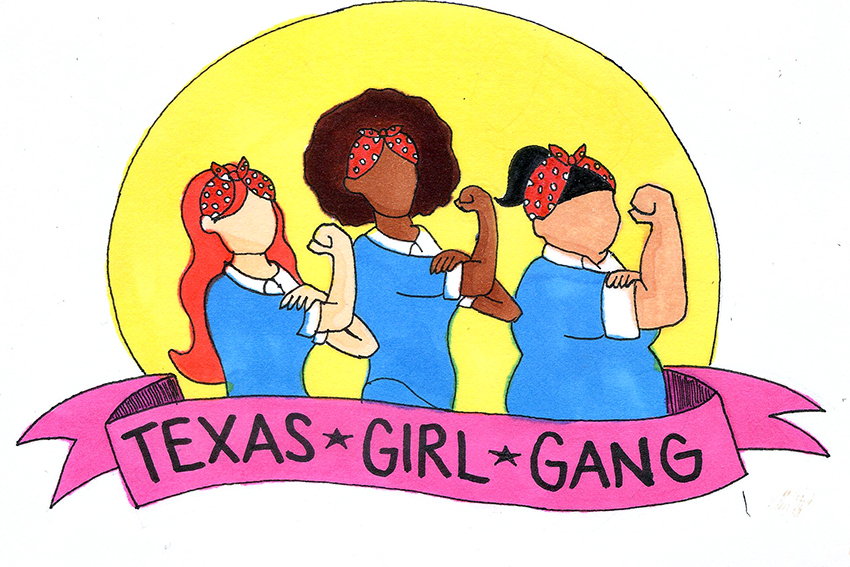When accounting sophomore Emily Aguiar started her personal blog “Girl Gang” last fall, she saw it as a way to keep track of her thoughts and give friends advice on topics such as schoolwork and self care. One year later, her blog has grown into a new organization on campus, Texas Girl Gang.
Texas Girl Gang began this semester and focuses on empowering women in three main ways: personally, professionally and politically. The group is open to female-identifying students of any major.
“In the spring last year I realized I could be doing so much more if we had a physical presence on campus, and I didn’t see any clubs doing all that we were doing,” Aguiar said.
Aguiar said she hopes Texas Girl Gang can be used as a stepping stone to get into other organizations, and help members determine their goals and develop skills to help them achieve them. Texas Girl Gang is currently comprised of nine officers, and is in the process of recruiting for the fall. Clarissa Castillo, accounting sophomore and group vice president, said she decided to join Texas Girl Gang after meeting Aguiar in Jester East andreading her blog.
“I wanted to stop saying that I’m a feminist … (and) that I want to support women and help them,” Castillo said. “I wanted to stop saying it and actually do it, and I thought that this would be a great way to use my strength and skills.”
Brittany Ballou, marketing sophomore and Texas Girl Gang treasurer, said the organization’s events could include a talk with UT professionals, a voter registration night and other events that promote self-care.
At their first meeting, about 25 students showed up. Ballou said she has been excited about the students’ response to their new group.
“The first thing people normally ask is, ‘What’s Girl Gang?,’” Ballou said. “But then people are so excited that there’s a place where you can just be around a lot of boss women and people who are like-minded.”
Aguiar said she hopes Texas Girl Gang can be a space for female students on a male-dominated campus.
“I just want this to be a space for female-identifying students to feel like they can come with their issues and not fear that they will be seen as hysterical or emotional,” Aguiar said. “So often the classroom setting is not the space for that.”





















